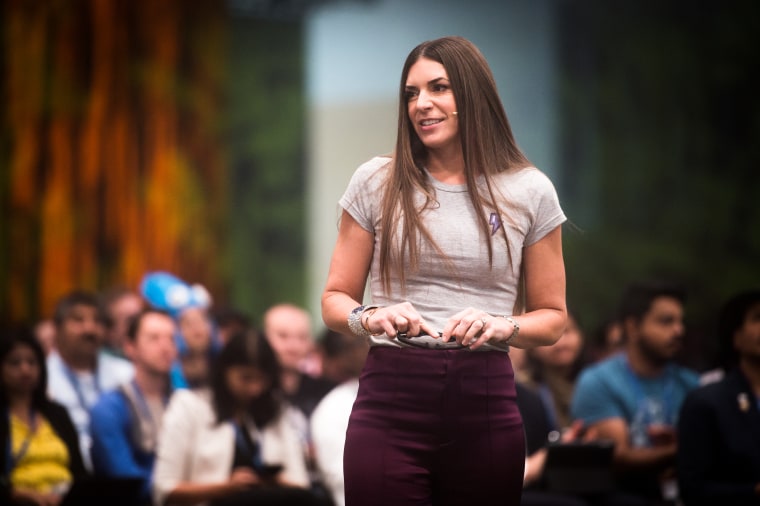Despite working in two completely different industries, “Morning Joe” co-host Mika Brzezinski and Salesforce president and chief marketing officer Sarah Franklin have a lot in common. They both have incredibly demanding jobs. They are both moms of two daughters. They both went through divorce. They do their best thinking during their daily morning runs. They struggled with rejection throughout their careers.
And despite it all, they both came out on top.
“I’m driven by the women that paved a path for me and all of the women I hope to open doors for,” Franklin recently told Brzezinski as part of Know Your Value’s “Women In Charge” series. “It’s my philosophy that there is always something we can do to help someone else …”
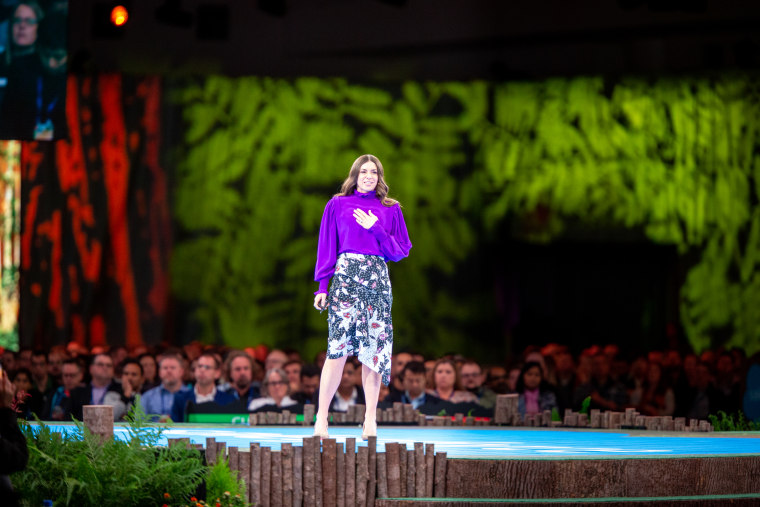
Franklin started out as a chemical engineer before moving into technical and product marketing and often found she was the only woman on her team. Witnessing the inequality of women and minorities in STEM inspired her to launch Trailhead, Salesforce’s learning platform, which helps people – particularly women and minorities – get re-skilled and launch STEM careers.
Franklin and Brzezinski chatted about how women can rise to the top of their fields, getting over rejection, raising daughters, leading during a pandemic and more.
Below is their conversation, which has been edited for brevity and clarity:
Mika Brzezinski: You have a new role, president and CMO, that started in January. I’m curious how that transition went and then having to lead during a pandemic. What did you learn about yourself? What were the challenges you faced that you didn't expect?
Sarah Franklin: Leading during the pandemic has been an incredible, crazy learning journey … and it was nothing any of us planned for. It challenged us all. For myself personally, I found myself working three jobs … being an executive in business, but also a mom and then a teacher. Many found themselves in this situation.
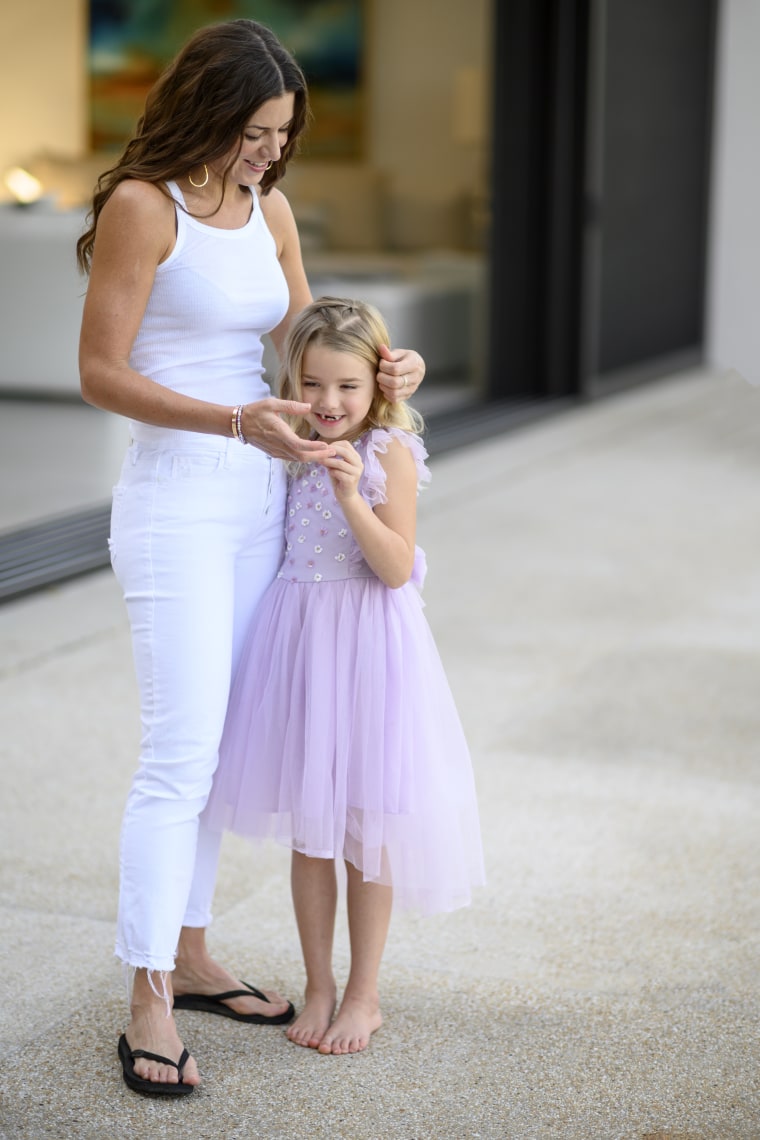
I talk a lot about how we have to bring our whole selves to work, be our authentic selves and have courage. But it was a testing time when you had to show up when you didn't feel fully put together, and you had to be more vulnerable than you ever were before.
I had to talk to my boss and say “I can only really work half the hours during the day. I need to split childcare with my family.” And that was really hard. And then having to be there for your entire team. So, it definitely taught me to be more vulnerable than I have ever felt comfortable being before …
Brzezinski: There has been no line between home and work during this pandemic, even at high-level positions.
I know what’s helped me (and you as well) is running. I am an avid, crazy runner. I did nine miles yesterday and just a few this morning. I love running, and I've been running since I was 13. Have you been running all your life or is it something you picked up later?
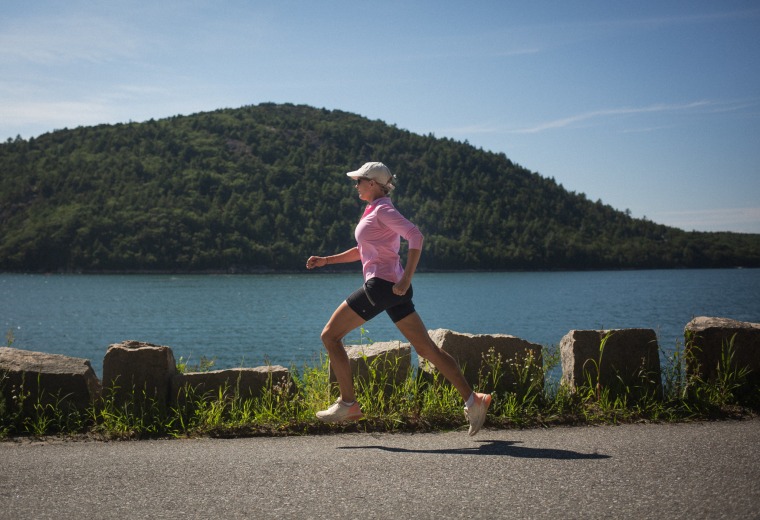
Franklin: I've been running all my life. I played soccer and field hockey, and I love meeting somebody who has the same passion of running. There's nothing more grounding. It's how I clear my mind …
Brzezinski: I took up meditation like three years ago and Dr. Gillian Galen, the woman who was guiding me through DBT, which is a mindfulness based therapy, said “Listen, it's OK.” Because I couldn't sit still. She's like, “Try it while you're running.” And I did. And it’s incredible. I love running, but there were days when I'm like, “why is this so hard for me?” It was because my mind was not in it. So it really got me through the pandemic. I really started stepping up my mileage in a big way.
Franklin: It is definitely a meditation. I think it's very peaceful to run and to clear your mind. I agree.
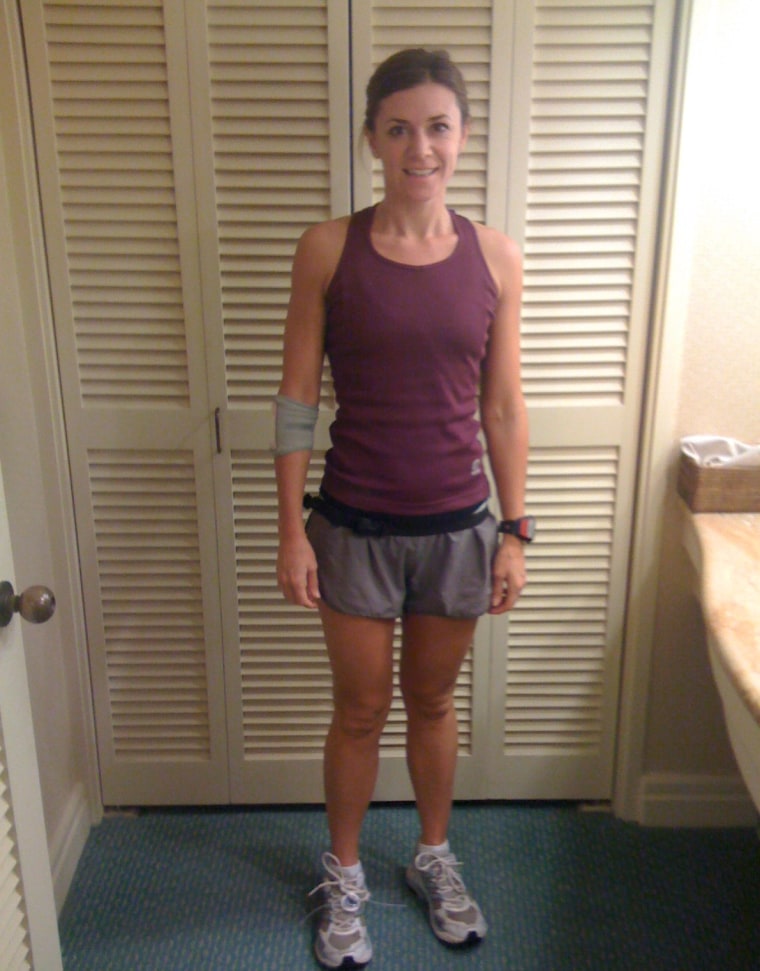
Brzezinski: Let’s talk about how you saved your rejection letters from 14 companies and posted them to Twitter.
I got rejected from so many companies. And fired, but it was the best thing that ever happened to me. I love that kind of transparency that you share about yourself, especially being in such a high-level position. What was the reaction to that tweet, and why did you do it?
Franklin: I was cleaning out some boxes, and I found all these letters … I came from humble beginnings. My mom was a teacher. She didn't have a hookup in the corporate world [to help get me] an internship. I had gotten my own job. I would run the recruiting fair at our college as a way to meet recruiters, because I didn't have any other connections.
And I just remembered it was very interesting to be at that age… with all that rejection. And I asked myself, “What are other people feeling when they have that rejection and how do they keep going?” And for me, “no” is one of the best motivators because I'm like, “OK, I'm going to prove to you that I can…”
Brzezinski: I think women really struggle with being told “no,” whether it's to a project or a job. We own it way too much. When I got fired, I wore it on my forehead for like nine months. I was so traumatized. And I talk today about how wearing it was more destructive than being fired. Do you notice that?
Franklin: Women are raised differently. I mean, I was raised only to speak when spoken to. [I was told,] “If you don't have anything nice to say, don't say anything at all” and “there's nothing a smile can't fix…”
Men are raised very differently. So when we're told “no,” we back down and we're like, “Oh, we're not allowed. I shouldn't challenge. I shouldn't try again. I was told no.” And that's something that we have to re-train ourselves on.
Also, you mentioned the feeling of shame or embarrassment. I have a large gap between my two daughters, because I divorced in the middle … When I got divorced, I felt like a loser. I was embarrassed. I was a single mother and people, they judge you. And it's this thing as women, we have to just take that judgment … I hope my two daughters, the future generation of women can change that … Women need to help each other and relearn those muscles of speaking up and standing up and not being ashamed, worried or scared.
Brzezinski: It's so interesting. You brought up the word "shame,” which I definitely felt whenever I got rejected. I would actually feel my face burn, like I did something wrong.
We have this in common as well, because I was in the middle of a divorce just as Know Your Value was hitting its stride. And I was talking to audiences across the country, and yet I felt like such a loser inside.
Looking back, we should be ashamed of none of it. Guys are not like that. They're like, “Yep, I got divorced. OK, so what time is it? Want to go for a drink?” … I don't think that would work for us. But you did say earlier that "no" is a motivator for you now. And I just wish women could stop with the shame so that "no" can be a motivator for them too. I think it's shame which clouds all of this. I don't know why we feel it.
Franklin: We feel it because we're conditioned to serve, and we're conditioned to be subordinate. And so we feel ashamed if we don't have approval … You have to be super confident to break out of that. And we're also not taught confidence. We are taught that we need to look like the cover of the magazine, we need to always be the perfect mother or the perfect wife or have the perfect role …
I hope the pandemic taught us to be more empathetic [especially in terms of] leadership. And also to be more appreciative …
Brzezinski: I've been working on 50 Over 50 with Know Your Value and Forbes, a list that honors 50 women who have achieved significant success after 50 and are paying it forward. It included women like Nancy Pelosi, Kamala Harris but also in the business world, vaccine world and tech. I know you're not in that category yet, but it's very inspiring for women under 50 too.
I wish I could be the way I am now, 10 years ago, 20 years ago. There’s so much to learn from women from these generations who are doing so much, really paving the way for us. And I'm just curious, did you ever envision your career after 50?
Franklin: No, I never did. But I also know that I don't want to die at 80, 90, 100. I want to live to be like 150. So, we know that will be scientifically impossible, but life is the most precious thing. I appreciate every moment. After 50, I don't want to stop, I want to make more impact. I want to experience more …
Brzezinski: I felt the same way. I'm 54. Thinking about my 50s when I was younger was white space in my brain. I never thought about it. And now I'm like, “there's so much to do.” And I feel like there's space in my brain to just be curious.
